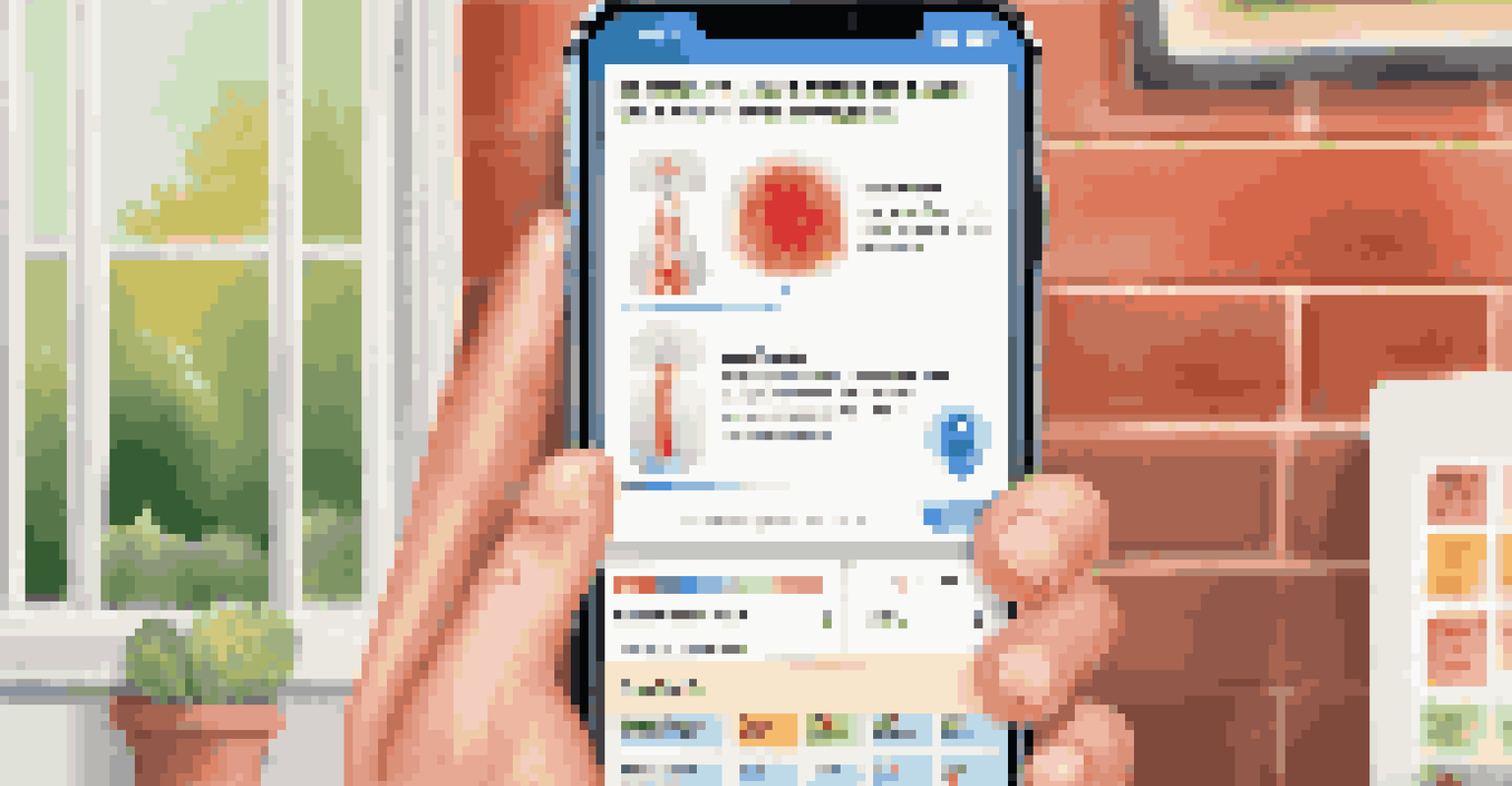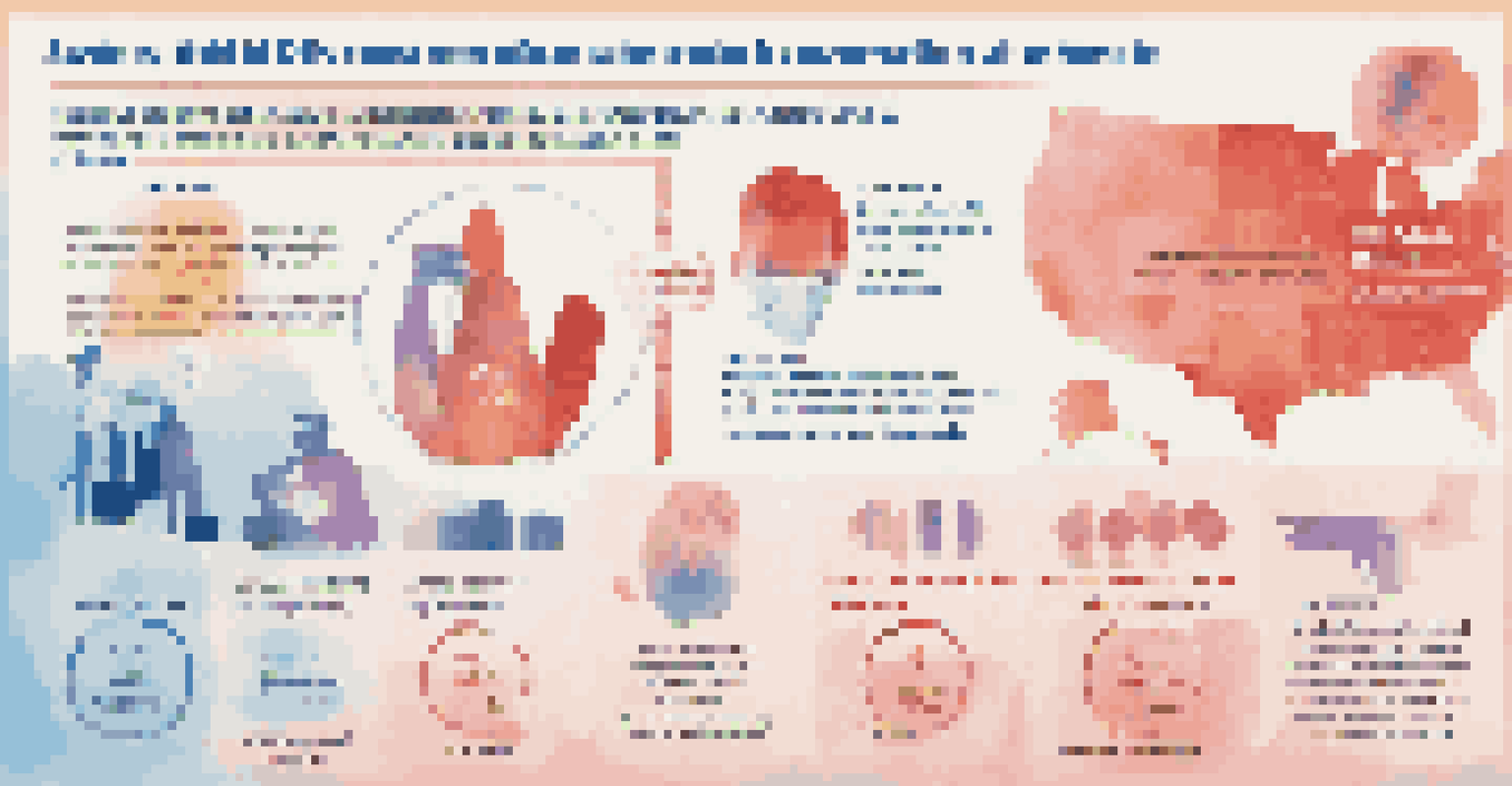The Role of Digital Media in Enhancing Vaccination Awareness

Understanding the Importance of Vaccination Awareness
Vaccination awareness is critical in promoting public health and preventing outbreaks. When individuals understand the benefits of vaccines, they are more likely to participate in immunization programs. This awareness can significantly reduce the incidence of vaccine-preventable diseases, which is crucial for community health.
Vaccines are not just a personal choice; they are a community responsibility.
Digital media plays a vital role in spreading this awareness, reaching audiences far and wide. Through social media, blogs, and online articles, people can access reliable information about vaccines at their fingertips. This accessibility helps demystify common myths and fears surrounding vaccinations.
Moreover, the interactive nature of digital platforms allows for real-time engagement. Users can ask questions, share experiences, and connect with health professionals, creating a community of informed individuals who prioritize their health and the health of their families.
Social Media's Impact on Vaccination Awareness Campaigns
Social media platforms, such as Facebook, Twitter, and Instagram, have revolutionized how health messages are communicated. These platforms enable health organizations to launch targeted campaigns that can reach specific demographics effectively. For instance, engaging visuals and compelling stories can resonate more with younger audiences.

Additionally, the shareability of content on social media amplifies vaccination messages. When individuals share informative posts, they contribute to a ripple effect, spreading awareness beyond their immediate networks. This organic reach can significantly enhance the visibility of vaccination campaigns.
Vaccination Awareness is Key
Understanding the importance of vaccines encourages participation in immunization programs and helps prevent outbreaks.
Furthermore, social media influencers can play a pivotal role in shaping public perception. When trusted figures advocate for vaccination, their followers are more likely to consider the information seriously, further enhancing the impact of awareness campaigns.
Using Multimedia to Educate About Vaccines
Multimedia resources, such as videos, infographics, and podcasts, serve as powerful tools in vaccination education. These formats can simplify complex medical information, making it more digestible for the general public. For example, a short animated video can explain how vaccines work in a fun and engaging way.
The greatest weapon against stress is our ability to choose one thought over another.
Moreover, multimedia content can cater to diverse learning preferences. While some people may prefer reading articles, others might find visual or auditory information more effective. By offering varied formats, digital media ensures that vaccination messages reach a broader audience.
Additionally, these resources can highlight personal stories and testimonials, making the information relatable. Hearing from individuals who have benefited from vaccines can shift perceptions and encourage others to get vaccinated.
Addressing Misinformation Through Digital Platforms
Misinformation about vaccines can spread rapidly through digital channels, posing a significant challenge to public health. However, digital media also provides a platform to counteract these false narratives. Health organizations can proactively share accurate information and dispel myths to combat misinformation effectively.
Fact-checking websites and dedicated social media accounts can further enhance this effort. By providing reliable sources and evidence-based information, these platforms help individuals discern fact from fiction. This is crucial in building trust in vaccination programs.
Digital Media Amplifies Messages
Social media and multimedia resources enhance vaccination awareness by spreading reliable information and engaging diverse audiences.
Moreover, engaging with communities directly can help address concerns and questions. Digital media allows health professionals to interact with the public, providing clarity and reassurance about vaccines, ultimately fostering a more informed society.
The Role of Mobile Applications in Vaccination Awareness
Mobile applications have emerged as a convenient way to track vaccinations and raise awareness. These apps often feature reminders for upcoming vaccinations, ensuring that individuals stay on schedule. Such proactive measures can significantly improve vaccination rates in communities.
Additionally, many apps provide educational resources, including articles and videos about vaccine safety and efficacy. Users can access this information anytime, empowering them to make informed decisions about their health.
Some applications even incorporate gamification elements, making learning about vaccinations fun and engaging. By rewarding users for completing educational modules or keeping up with their vaccination schedules, these apps can encourage proactive health behaviors.
Community Engagement Through Digital Media Initiatives
Community engagement is crucial for promoting vaccination awareness, and digital media can facilitate this outreach. Local health departments and organizations can create online forums and events to discuss vaccination topics and answer questions. This direct interaction fosters a sense of community and support.
Moreover, digital media can help organize vaccination drives and campaigns. By using event pages and targeted advertisements, health organizations can effectively mobilize community members to participate in vaccination events, increasing turnout and awareness.
Combatting Misinformation Online
Digital platforms enable health organizations to counteract vaccine misinformation effectively and foster trust through direct community engagement.
Engaging local influencers and community leaders in these initiatives can also enhance credibility. When trusted figures advocate for vaccinations, they can inspire others to follow suit, amplifying the overall impact of the campaigns.
The Future of Digital Media in Vaccination Awareness
As technology continues to evolve, so will the role of digital media in vaccination awareness. Emerging technologies, such as augmented reality (AR) and virtual reality (VR), could offer innovative ways to educate individuals about vaccines. Imagine experiencing a virtual tour of how vaccines are developed and tested, making the information even more tangible.
Additionally, advancements in data analytics can help tailor vaccination messages more effectively. By analyzing user behavior and preferences, organizations can create personalized campaigns that resonate with specific audiences, leading to higher engagement.

Ultimately, the future looks promising for digital media in enhancing vaccination awareness. By continuously adapting to new technologies and trends, we can ensure that accurate information reaches those who need it most, fostering a healthier society.